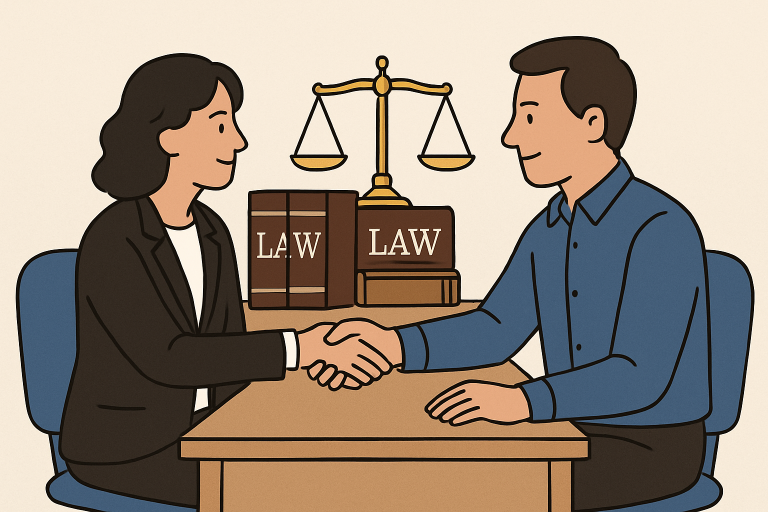Key Takeaways
- Ensure the attorney specializes in and has relevant experience with your specific legal issue.
- Assess communication skills and accessibility.
- Clarify all fee structures and billing practices up front.
- Check reviews, testimonials, and professional reputation.
- Schedule consultations to determine compatibility and trust.
Introduction
Navigating legal challenges can be daunting, and having the right attorney by your side dramatically influences the outcome. Whether you face a personal injury claim, divorce proceedings, or need guidance for financial distress, securing knowledgeable and dedicated legal counsel provides both reassurance and strategic advantage. For those confronting debt or severe economic issues, consulting a Bankruptcy Attorney early in the process can offer much-needed clarity and tactical support for your next steps.
Every legal matter is unique, so choosing legal representation demands thoughtful research and clear priorities. From evaluating an attorney’s expertise and reputation to understanding their fees and ensuring a comfortable working relationship, careful vetting lays the groundwork for successful outcomes.
Assess Experience and Specialization
Choosing an attorney specializing in law relevant to your challenge is a top priority. The nuances of family law, real estate, business law, and criminal defense are vastly different, so an attorney’s experience can directly impact the quality and outcome of your case. For example, a bankruptcy or debt relief lawyer will better grasp complex insolvency issues than a general practitioner. Don’t hesitate to ask about years in practice, previous cases handled, and related outcomes.
Seasoned attorneys may also hold memberships in professional organizations, speak at legal seminars, or author articles in their field—all good signs of expertise and commitment. For more on legal specialties, see this FindLaw guide to hiring a lawyer.

Evaluate Communication Skills
A competent attorney knows the law and how to break it down for clients in an understandable way. Clear, consistent, and timely communication supports a trusting attorney-client relationship and enables you to make informed decisions at every stage. During initial talks, observe how quickly the attorney or their staff responds and whether their explanations make sense to you.
Effective communication extends beyond providing updates and involves active listening and understanding your goals. Ensure the attorney encourages your questions and clarifies expectations about how often you’ll be updated.
Understand Fee Structures
Transparency in billing is essential. Attorneys typically operate under several fee arrangements: hourly rates, contingency fees (often seen in personal injury cases, where payment is a percentage of the settlement), or flat fees for specific services. Request a precise written estimate, and ask about additional expenses for filing fees, expert witnesses, or administrative work.
Knowing what is included protects you from hidden costs—and helps you plan financially. More details about standard legal fees can be found in this FindLaw overview of legal expenses.
Research Reputation
A lawyer’s reputation—both in the legal community and among past clients—can give you confidence in their abilities. Look for testimonials on the attorney’s website, but also check independent reviews on platforms like Avvo, Martindale-Hubbell, or Google Reviews. Legal directories or your local bar association’s online database can highlight accolades, awards, or disciplinary records.
Positive reviews often signal professionalism, integrity, and reliability, while a consistent pattern of complaints is a red flag.
Schedule Initial Consultations
The consultation allows you to interview the attorney as they assess your case. Many lawyers offer free or low-cost initial consultations; use this time to ask about case strategies, timelines, possible outcomes, and the attorney’s general approach. Bring any relevant documents or information to your case and ask how the attorney would address your needs.
First impressions matter—notice whether the attorney listens attentively, engages thoughtfully, and seems genuinely interested in helping you solve your issue.
Consider Compatibility and Trust
Because you’ll be sharing personal and possibly uncomfortable details, having confidence and comfort in your attorney is critical. Trust is built not just on legal proficiency but also on rapport, empathy, and ethical conduct.
If you feel uneasy or pressured, it’s perfectly acceptable to keep searching until you find someone who meets your emotional and practical requirements.
Verify Credentials and Licensing
Double-check that your attorney is licensed and in good standing in your state. Confirm their status with your local bar association and review any grievances or disciplinary action history. States typically provide online portals for the public to search lawyer credentials—this step safeguards you from unlicensed or disbarred practitioners.
Verifying these credentials helps ensure your case is in capable and ethical hands.
Conclusion
Finding the proper legal representation is an investment in your future well-being, whether tackling a one-time dilemma or a long-term legal matter. By prioritizing experience, communication, cost transparency, compatibility, and thoroughly evaluating each candidate, you set yourself up for a more confident and effective legal journey.